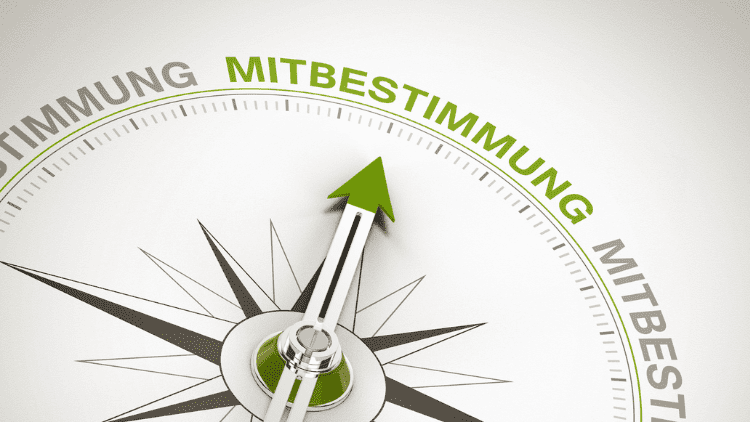
Europe is undergoing multiple transitions. For these to succeed, social dialogue to build consensus will be essential.

The world of work is in turmoil. It is increasingly obvious that for all the slogans pronounced during the pandemic—‘building back better’, ‘investing in resilience’, ‘recovery and reconstruction’, ‘rewarding key workers’ and so on—none of the grand promises has been delivered.
Instead, a ‘cost-of-living crisis’ has reminded us of the inherent fragility of the economic system. That system remains fundamentally anchored to the idea that ‘labour’ is, essentially, a commodity whose use needs to be ‘optimised’ and cost ‘reduced’—for instance to curb inflation or contain overall pension expenditure.
We were all expecting a new chapter in human history, with labour receiving renewed recognition and, at last, a fair share of the fruits of progress. But that has not happened.
Instead, there is a clear sense that promises were broken and we may be regressing to the old ways. This generates an unprecedented social malaise, a new ‘winter of discontent’ fuelled by feelings of betrayal. Not everything is lost, but hope is hanging by a thin thread.
Become part of our Community of Thought Leaders
Get fresh perspectives delivered straight to your inbox. Sign up for our newsletter to receive thought-provoking opinion articles and expert analysis on the most pressing political, economic and social issues of our time. Join our community of engaged readers and be a part of the conversation.
Missing transition
The current crisis is not merely conjunctural. We are caught in the middle of a complex structural crisis, referred to by many as a ‘poly-crisis’. It is the result of Europe’s inability to deal with a number of inevitable transformations in a way that is socially sensitive.
Four very important transitions present themselves and are analysed in greater depth in the 2023 issue of ‘Benchmarking Working Europe’, the flagship publication from the European Trade Union Confederation and the European Trade Union Institute. They are: a green transition; a technological and digital transition; a geopolitical transition (linked to the concept of ‘strategic autonomy’ and the global reshaping of supply chains), and an emerging, but extremely tentative and ‘fuzzy’, transition in macroeconomic policy. This last transition, if inadequately tackled, risks precipitating Europe into a new period of macroeconomic and fiscal ‘rigour’ and a return to the old and discredited paradigm of austerity.
But we are clearly missing a fifth and crucial transition: the social transition. It is unthinkable, and indeed reckless, to expect societies to navigate these four transitions without a compass that constantly reminds us what the destination of this voyage should be—a socially and environmentally sustainable future, where we no longer expect humans and finite earthly resources to serve an economic system, but rather design the latter to serve human needs within planetary boundaries.
In her book Capitalism on Edge: How Fighting Precarity Can Achieve Radical Change Without Crisis or Utopia, Albena Azmanova explains how part of the problem with our economic system is that even purported solutions to its ills may lack ambition and settle for expediency, ‘common sense’ and pragmatism. Reactive crisis management however unwittingly institutionalises and perpetuates the crisis.
This is where the social transition comes in. It is about elaborating, through bold structural reforms, a new model of production and consumption that is socially and ecologically sustainable—and for which ‘sustainability and resilience’, rather than ‘stability’ or ‘growth’, should emerge as the new buzzwords to capture the popular imagination.
A social and democratic transition
For all these transitions to succeed the social transition must also be a democratic one. Each presents important tradeoffs and should be the object of democratic deliberation, certainly in the elections to the European Parliament next year.
But the answers cannot be formulated and democratically articulated solely every four or five years in parliamentary elections. The pace of social change these days is simply too rapid.
Just think of what has happened during the current EP term: a global pandemic with significant associated dislocations, onrushing climate change with extreme weather events around the world and the ultimate ‘regression to the old ways’ of Russia’s invasion of Ukraine. It is immediately obvious that to reduce democracy to an infrequent electoral ritual—however important—is not just extremely limiting but also plainly inadequate to the challenges ahead.
Support Progressive Ideas: Become a Social Europe Member!
Support independent publishing and progressive ideas by becoming a Social Europe member for less than 5 Euro per month. You can help us create more high-quality articles, podcasts and videos that challenge conventional thinking and foster a more informed and democratic society. Join us in our mission – your support makes all the difference!
That is why social dialogue, collective bargaining and industrial democracy at large must all be central to this transformative project. This is not an ideologically driven claim. Rather, it would be utterly unrealistic to think that the new rules that will govern the economy, the deployment of new technologies, the fundamental structures and arrangements of our systems of production and the use of worldly resources could be fairly and sustainably agreed without a continuous, multi-level and polycentric, democratic debate granting a special seat to labour and its representatives.
The world of labour is claiming a fair share of the fruits of human progress for all and, as the title of the ETUC’s 15th congress this month in Berlin asserts, ‘A fair deal for workers’.









